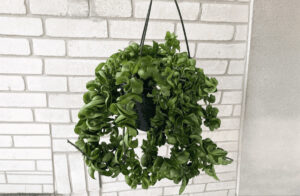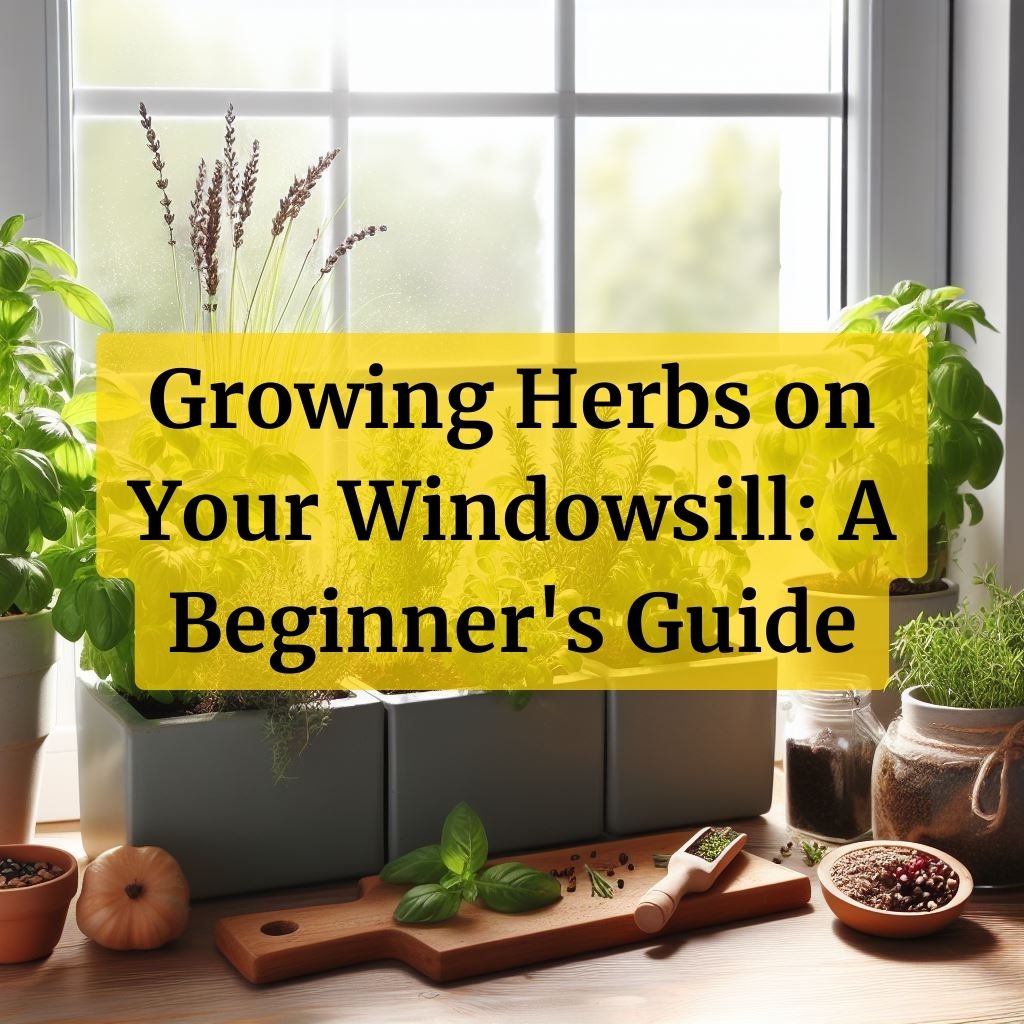
Growing herbs on your windowsill is a delightful and straightforward way to have fresh herbs at your fingertips. By choosing the right herbs and providing them with proper care, you can create a vibrant herb garden right in your home.
In this article
Benefits of having a windowsill herb garden
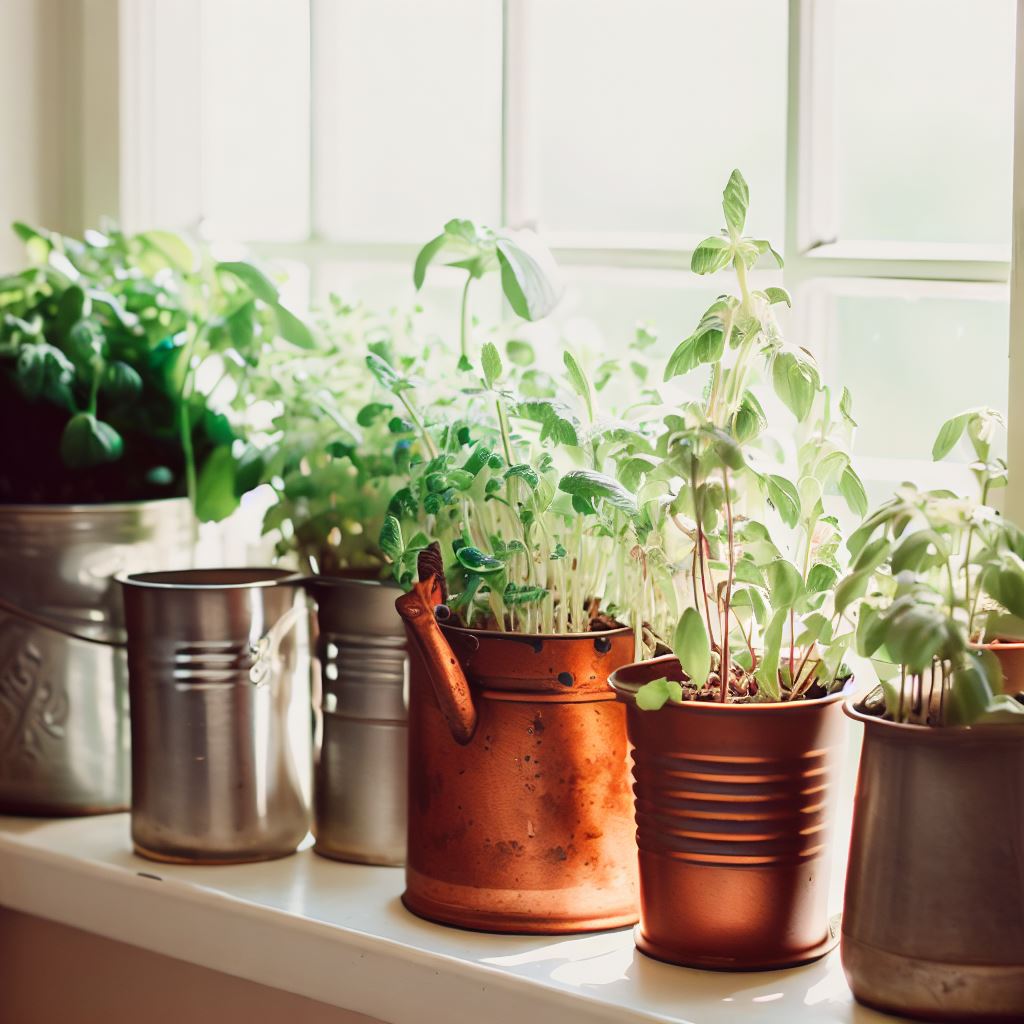
A windowsill herb garden isn’t just a decorative addition to your home; it’s a practical and rewarding endeavor. Here’s why you should consider cultivating herbs on your windowsill:
- Year-round Freshness: Unlike outdoor gardens that are subject to seasonal limitations, your windowsill garden can thrive throughout the year, providing fresh herbs whenever you need them.
- Convenience at Arm’s Reach: With herbs growing right in your kitchen, you can snip a handful of fresh basil or rosemary to enhance your culinary creations without stepping outside.
- Space-Efficient: Limited space? No problem! A windowsill herb garden requires minimal space, making it an ideal choice for urban dwellers or those with small homes.
- Aesthetic Appeal: The lush greenery and fragrant herbs can elevate the ambiance of your living space, bringing a touch of nature indoors.
Selecting the perfect herbs
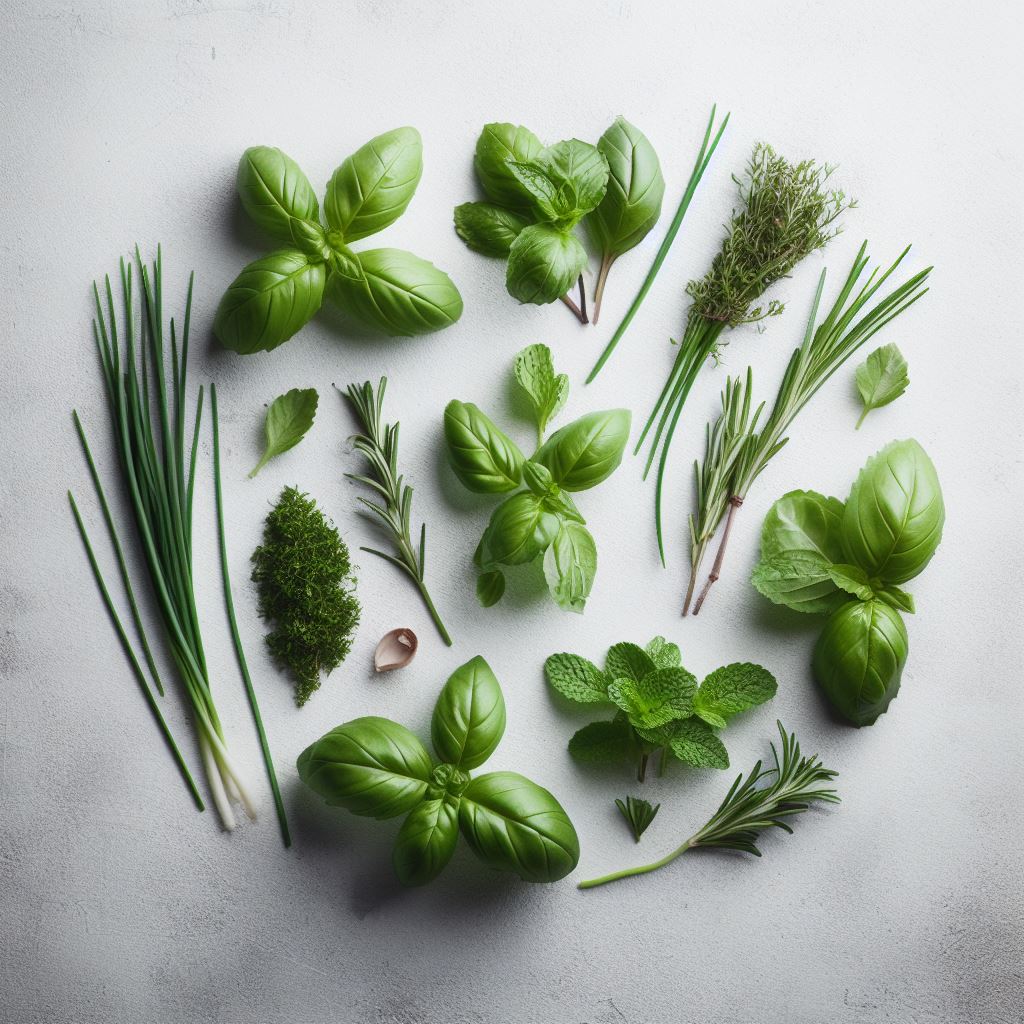
Now that you’re convinced of the benefits of a windowsill herb garden, the next step is choosing the right herbs to grow.
Here are some of my personal favorites, well-suited for growing on your windowsill:
| Basil | Basil is a versatile herb known for its rich, aromatic leaves. It thrives in a sunny windowsill and can be used in a variety of culinary delights, from pesto to Caprese salads. |
| Chives | Chives are a hardy herb that can thrive in limited sunlight. Their mild onion flavor adds a delightful kick to salads and dishes. |
| Mint | For a refreshing touch, consider mint. It’s perfect for making teas, garnishing desserts, or crafting refreshing cocktails. |
| Rosemary | Rosemary, with its pine-like aroma, is excellent for seasoning roasted meats and potatoes. It loves sunlight and can thrive indoors. |
| Parsley | Parsley is a kitchen staple, adding freshness to a wide range of dishes. It’s relatively easy to grow on your windowsill. |
Getting started
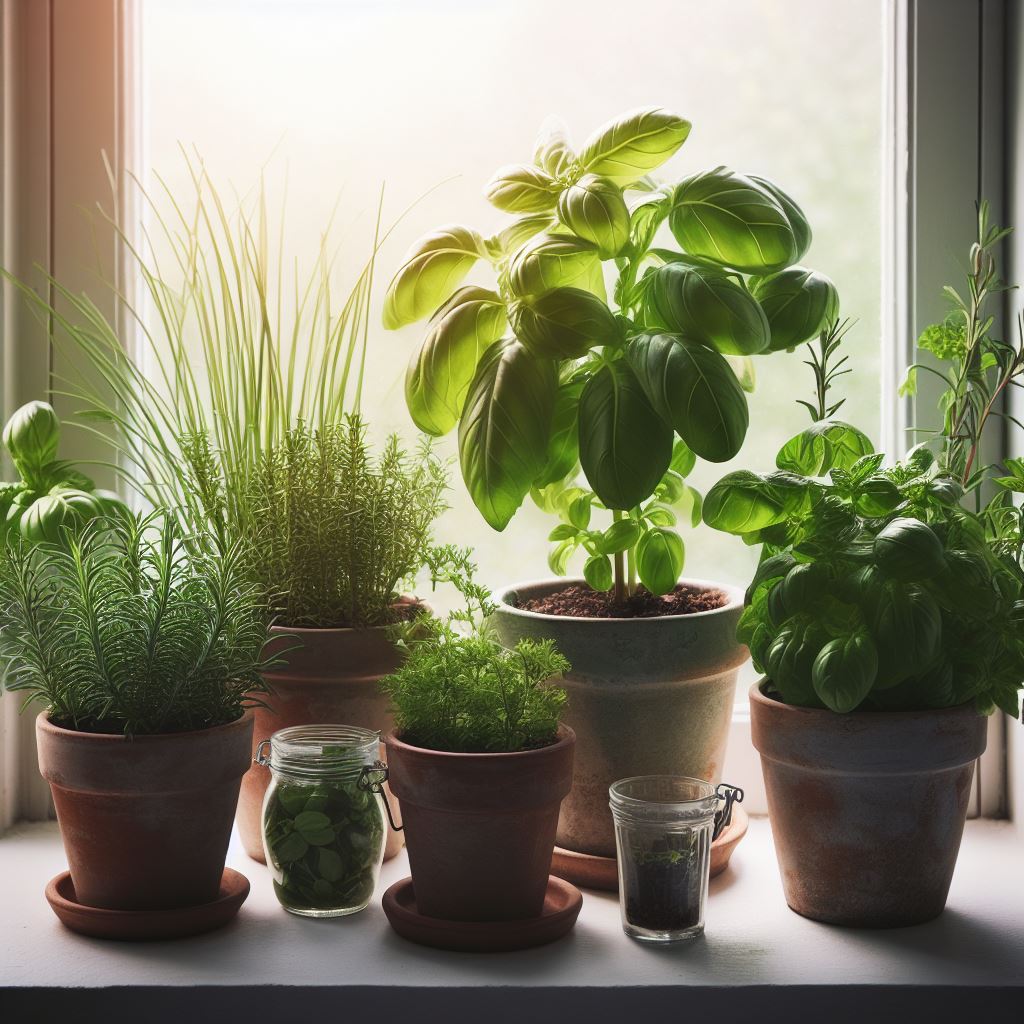
With your chosen herbs in mind, it’s time to get started. Here’s a step-by-step guide to help you get started:
- Choosing the Right Location: Place your herb pots on a south-facing windowsill, as herbs thrive with ample sunlight. If south-facing isn’t an option, east or west-facing windowsills can also work, but you may need to rotate your herbs to ensure even growth.
- Selecting Containers: Choose well-draining containers with adequate drainage holes to prevent waterlogging. Terra cotta pots are a popular choice for herb gardening due to their breathability.
- Quality Soil Matters: Use a well-balanced potting mix to provide essential nutrients for your herbs. Avoid garden soil, as it can be too heavy and compact for containers.
- Planting with Care: Gently transplant your chosen herbs into the pots, ensuring they have enough space to grow. Water them thoroughly after planting.
- Watering Wisely: Overwatering can be detrimental to herbs. Let the soil dry slightly between watering sessions. A good rule of thumb is to water when the top inch of soil feels dry.
- Feeding Your Herbs: Herbs benefit from occasional fertilization. Use a balanced liquid fertilizer every two to four weeks during the growing season.
- Pruning for Vigor: Regularly trim your herbs to encourage bushier growth. This not only keeps your herbs healthy but also provides you with a constant supply of fresh leaves.
General Care
Sunlight Requirements
In the world of herb gardening, sunlight is life itself. Here’s how to ensure your herbs get the right amount of sun:
- Optimal Sun Exposure: While herbs love sunlight, some may require different levels. Basil and rosemary, for instance, thrive in full sun, whereas mint and parsley can tolerate partial shade.
- Rotate Your Herbs: To promote even growth, periodically rotate your herb pots to ensure all sides receive adequate sunlight. This simple practice can prevent one side from becoming leggy and weak.
Watering Wisdom
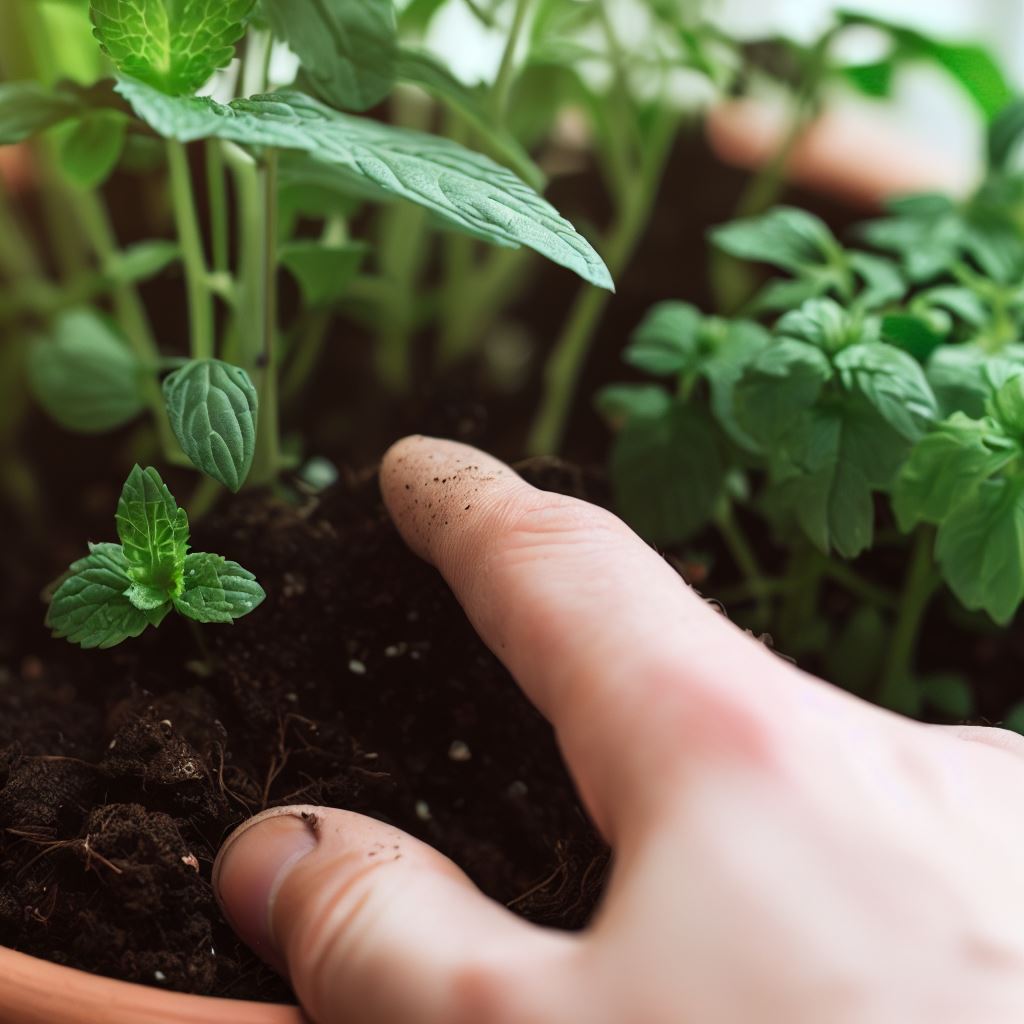
Proper watering is essential for herb health. Here’s a guide on how much to water your plants:
- The Finger Test: Instead of sticking to a rigid schedule, use the “finger test.” Insert your finger into the soil up to the first knuckle. If it feels dry at that depth, it’s time to water.
- Avoid Overwatering: Overwatering can lead to root rot, a common issue in container gardening. Ensure your pots have good drainage to prevent excess water accumulation.
- Humidity Help: Herbs appreciate some humidity. You can provide this by placing a tray of water near your herb pots or misting them occasionally.
Pruning for Optimal Growth
Regular pruning isn’t just for aesthetics; it’s crucial for herb health:
- Pinch or Trim: Pinch or trim the tips of your herbs to encourage bushy growth. This helps prevent legginess and encourages the development of fresh leaves.
- Harvest Regularly: Don’t be shy about harvesting your herbs. Frequent harvesting not only provides you with fresh herbs for your kitchen but also keeps your plants in check.
Fertilization Tips
To ensure your herbs receive the necessary nutrients, consider these fertilization tips:
- Balanced Fertilizer: Use a balanced, water-soluble fertilizer during the growing season. Follow the manufacturer’s instructions for application.
- Less Is More: Avoid over-fertilizing, as this can lead to excessive foliage growth at the expense of flavor. A light touch with fertilization is often more beneficial.
Pest Management

Even the most carefully tended gardens can fall victim to pests. Here’s how to combat common herb garden intruders:
- Aphids and Spider Mites: Combat these tiny critters with a gentle spray of water or by introducing natural predators like ladybugs.
- Fungal Issues: Keep your herbs well-ventilated and avoid overcrowding to prevent fungal diseases. Neem oil or a homemade garlic spray can help deter fungal issues.
- Root Rot: To prevent root rot, ensure your pots have adequate drainage, and avoid overwatering.
Creative uses for herbs
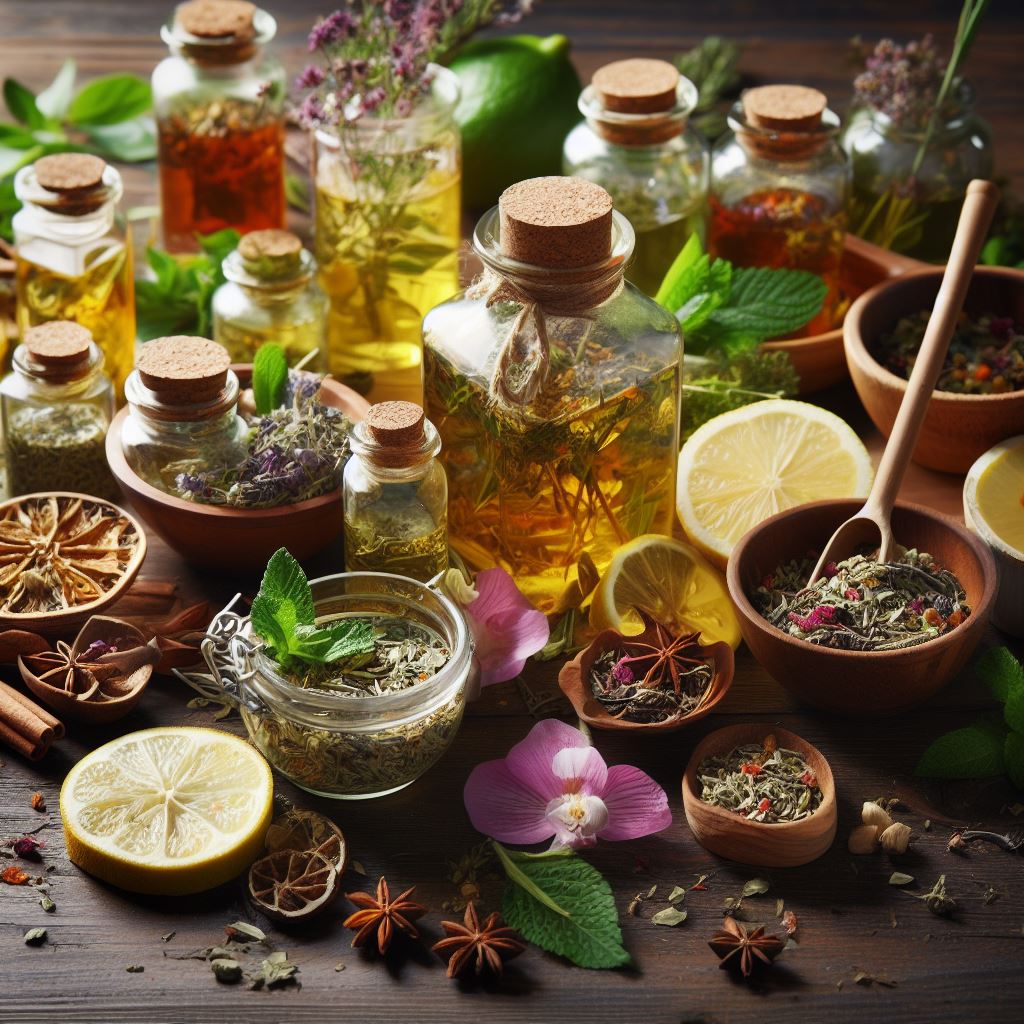
Your windowsill herb garden isn’t limited to garnishing dishes. Here are some creative uses for your homegrown herbs:
- Herbal Tea Blends: Experiment with herbal tea blends by drying your herbs and mixing them to create soothing, aromatic teas.
- Herb-Infused Oils and Vinegars: Enhance your culinary creations by infusing olive oil or vinegar with herbs like basil, rosemary, or thyme.
- Homemade Potpourri: Create fragrant potpourri by drying herbs such as lavender, mint, and lemon balm. Place them in decorative bowls for a refreshing aroma in your home.
- Herb-Infused Cocktails: Elevate your cocktails by muddling fresh herbs like mint, basil, or cilantro into your favorite drinks.
Preserving your herbs
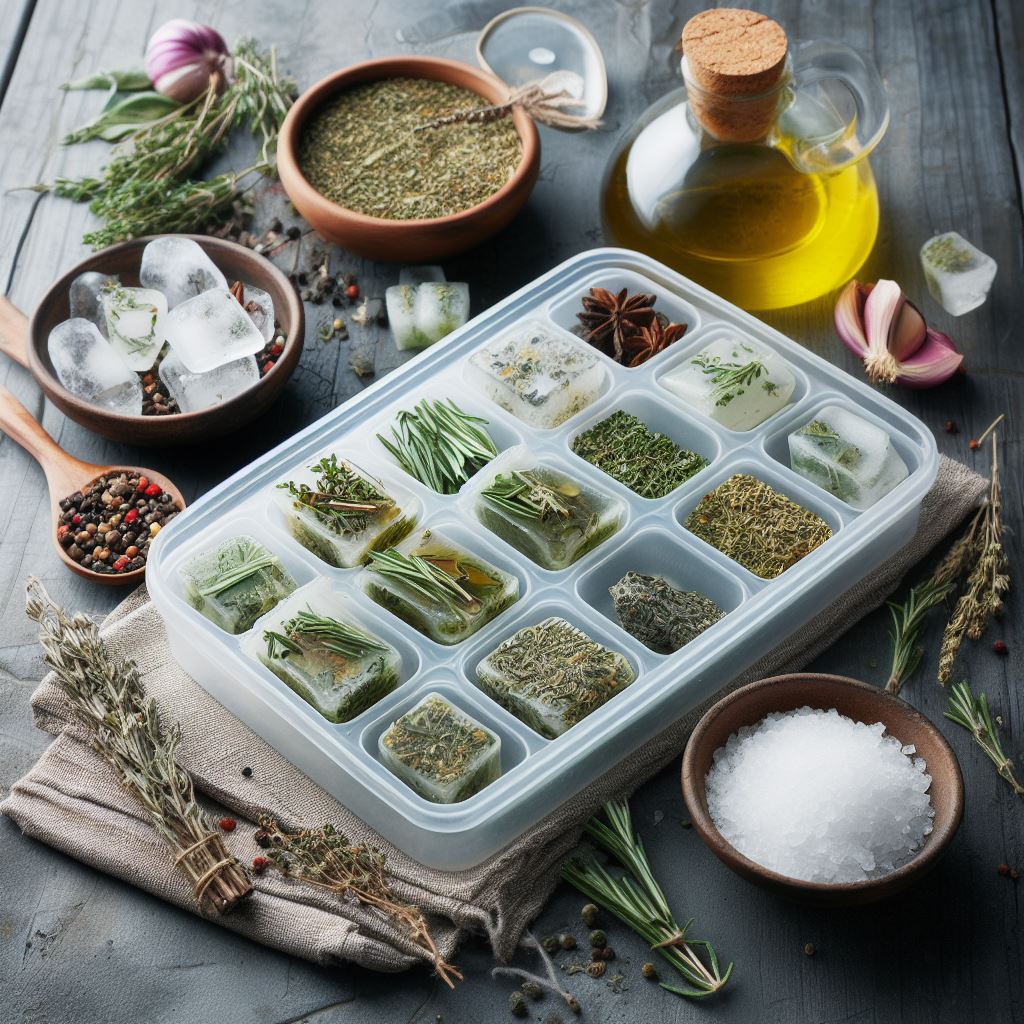
Once you’ve harvested your herbs, it’s time to preserve them for future use. Here are a few methods to consider:
- Drying Herbs: Hang your herbs in small bundles in a well-ventilated, dry area. Alternatively, you can use a food dehydrator or even your oven set to low heat. Once dry, store the leaves in airtight containers away from light.
- Freezing Herbs: Freeze your herbs in ice cube trays with water or olive oil for later use. Alternatively, you can chop your herbs finely, mix them with olive oil, and freeze them in ice cube trays for easy access to herb-infused oil.
- Herb Salt or Sugar: Create herb-infused salt or sugar by mixing finely chopped herbs with salt or sugar. Store in airtight containers for flavored seasoning.
Cooking
With your preserved herbs, the culinary possibilities are endless. Here are a few ideas to get your creative juices flowing:
- Flavorful Soups and Stews: Add dried or frozen herbs to your soups and stews for a burst of flavor. Rosemary in a hearty potato soup or thyme in a savory stew can elevate your dishes.
- Herb Butter: Mix finely chopped herbs with softened butter to create herb-infused butter. Spread it on bread, melt it over steamed vegetables, or use it to season grilled meats.
- Fresh Herb Salads: Toss a handful of fresh herbs into your salads for a pop of color and taste. Mint in a fruit salad or basil in a Caprese salad can be delightful.
- Herb-Infused Cocktails: Get creative with cocktails by muddling fresh or frozen herbs into your drinks. Try a basil mojito or a rosemary-infused gin and tonic.
Remember that herb gardening is not just a hobby; it’s a delightful way to infuse your dishes with freshness and creativity. As you continue to nurture your windowsill herb garden, you’ll discover new uses, recipes, and techniques that make the process even more rewarding.
Frequently Asked Questions
Can I harvest herbs throughout the year, or should I stick to a specific season?
You can harvest herbs year-round, but their flavor may be most intense just before they flower. With proper care and preservation, you can enjoy herbs in every season.
Are there herbs that don’t preserve well, or should I avoid any particular methods for certain herbs?
Most herbs can be preserved using drying, freezing, or infusing methods. However, delicate herbs like cilantro are best used fresh, as they lose flavor when dried.
Can I use preserved herbs in the same quantities as fresh herbs in recipes?
When using dried herbs, remember that their flavors are more concentrated than fresh herbs. Start with a smaller amount and adjust to taste in your recipes.
Can I grow multiple herbs in the same pot on my windowsill?
While it’s possible to grow multiple herbs in the same pot, it’s generally better to give each herb its own container to prevent competition for resources.
Are there any herbs that are particularly challenging to grow on a windowsill?
Some herbs, like dill and cilantro, can be a bit more challenging due to their shorter lifespan and tendency to bolt. However, with proper care, they can still thrive on a windowsill.
Happy gardening!







